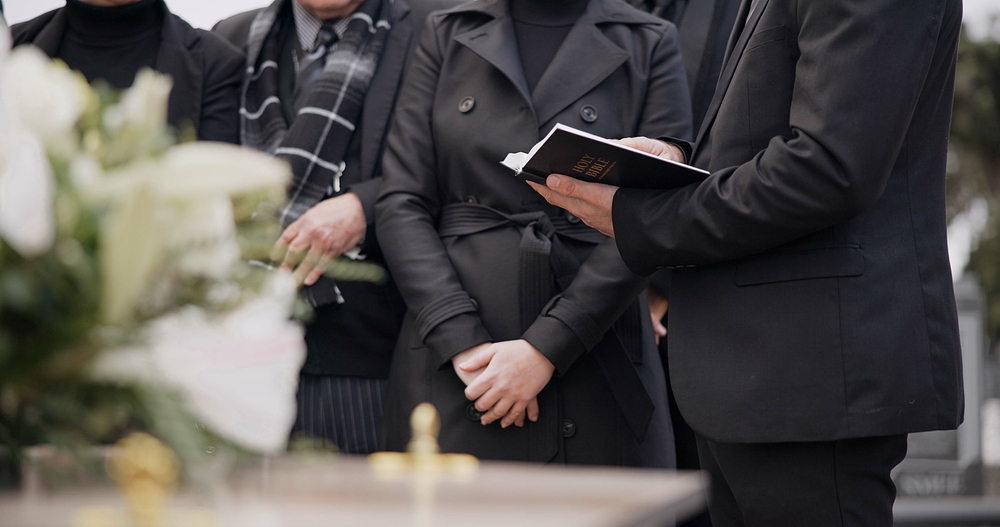Understanding Cremation Services: Costs and Options
Cremation has become an increasingly popular choice for end-of-life arrangements in Australia, offering families a dignified and often more affordable alternative to traditional burial. With various service options available, from direct cremation to full-service ceremonies, understanding the different types of cremation services can help families make informed decisions during difficult times. This comprehensive guide explores the various aspects of cremation services, including costs, procedures, and what families can expect throughout the process.

When facing the loss of a loved one, families often find themselves navigating unfamiliar territory while making important decisions about final arrangements. Cremation services have gained significant popularity across Australia, providing families with flexible options that can accommodate various cultural, religious, and personal preferences while often presenting a more cost-effective solution than traditional burial methods.
How Much Does Cremation Cost
The cost of cremation services varies significantly depending on the type of service selected and additional options chosen by the family. Direct cremation, which involves the basic cremation process without a formal service, typically represents the most economical option. This straightforward approach includes the collection of the deceased, necessary paperwork, the cremation process itself, and return of ashes to the family.
Full-service cremation arrangements include additional elements such as viewing facilities, memorial services, and ceremonial aspects that can substantially increase the overall expense. These comprehensive packages often incorporate professional services, venue hire, floral arrangements, and other ceremonial elements that families may desire to honour their loved one appropriately.
Cost of Cremation Services Breakdown
Understanding the various components that contribute to cremation costs helps families budget appropriately and make informed decisions. Basic cremation fees typically cover the fundamental process, including the use of crematorium facilities, staff services, and standard cremation containers. Additional costs may arise from upgraded urns, memorial services, death certificates, and transportation services.
Many cremation providers offer package deals that bundle various services together, potentially offering better value than selecting individual components separately. These packages might include basic professional services, cremation fees, standard urns, and assistance with necessary documentation, providing families with a comprehensive solution during their time of need.
Traditional Burial Costs Comparison
When comparing cremation to traditional burial options, several cost factors become apparent. Traditional burial typically involves expenses for caskets, burial plots, headstones, grave opening and closing fees, and ongoing maintenance costs. These elements can accumulate to create substantially higher overall expenses compared to cremation alternatives.
Cremation eliminates many of these ongoing costs while providing families with various memorialisation options. Families can choose to scatter ashes in meaningful locations, keep urns at home, or place them in columbarium niches, offering flexibility that traditional burial arrangements may not provide.
| Service Type | Provider | Cost Estimation |
|---|---|---|
| Direct Cremation | InvoCare | $2,000 - $3,500 |
| Full Service Cremation | White Lady Funerals | $4,000 - $8,000 |
| Cremation with Memorial | Simplicity Funerals | $2,500 - $5,500 |
| Traditional Burial | General Providers | $8,000 - $15,000 |
Prices, rates, or cost estimates mentioned in this article are based on the latest available information but may change over time. Independent research is advised before making financial decisions.
Choosing the Right Cremation Service
Selecting appropriate cremation services involves considering various factors including family preferences, cultural requirements, budget constraints, and desired memorial options. Some families prefer simple, dignified arrangements while others seek elaborate ceremonies that celebrate the life of their loved one. Understanding available options helps families make choices that align with their values and circumstances.
Local cremation providers often offer consultation services to help families navigate available options and understand the process involved. These consultations can provide valuable information about timing, documentation requirements, and various service levels available to meet different needs and budgets.
What to Expect During the Process
The cremation process typically begins with initial arrangements made through a funeral director or cremation provider. Necessary documentation must be completed, including death certificates and cremation permits, before the process can proceed. Most providers handle these administrative requirements on behalf of families, reducing stress during difficult times.
The actual cremation process takes several hours, after which ashes are processed and prepared for return to the family. Depending on the service level selected, this may occur within a few days to a week after initial arrangements are made. Families can typically expect clear communication throughout the process regarding timing and next steps.
Cremation services provide families with dignified, flexible, and often more affordable options for honouring their loved ones. By understanding available services, associated costs, and the process involved, families can make informed decisions that best serve their needs during challenging times. Whether choosing simple direct cremation or comprehensive memorial services, cremation offers meaningful ways to celebrate and remember those who have passed while accommodating various preferences and budgets.




